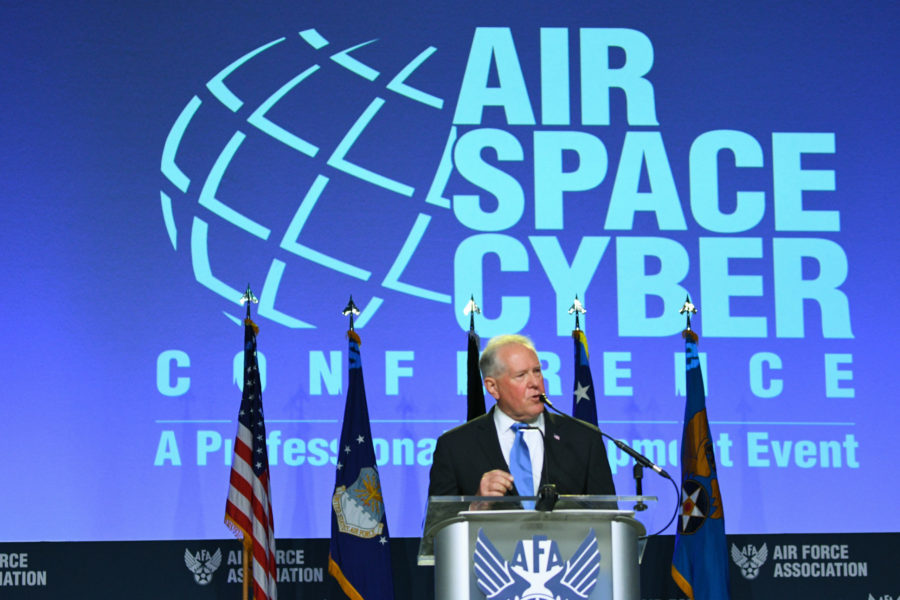Air Force Secretary Frank Kendall likes to say he came of age at West Point in midst of the Cold War. Spending half his life involved in that frozen conflict informs his sensibilities about the threat posed by China in the future.
Kendall devoted much of his keynote address at AFA’s Air, Space & Cyber Conference on Sept. 20 to China’s emergence as a peer competitor with “the potential for global strikes from space.”
“There is a potential for weapons to be launched into space, then go through this old concept from the Cold War called the Fractional Orbital Bombardment System,” said Kendall, “which is a system that basically goes into orbit and then de-orbits to a target.”
During the Cold War, both the U.S. and the Soviet Union considered putting nuclear weapons in space. The Soviets advanced the concept with FOBS, a system that combined a low-flying missile and nuclear warhead that reached low-Earth orbit.
“If you use that kind of approach, you don’t have to use a traditional ICBM trajectory,” he said. “It’s a way to avoid defense systems and missile warning systems.” Kendall also made a vague reference to other offensive capabilities, saying there is “a potential to actually put weapons in space.”
Kendall said “there’s no question about the technical feasibility or technology to do these types of things,” noting that China already has a satellite with a robotic arm in orbit, which Chief of Space Operations Gen. John W. “Jay” Raymond warned in February could be used to hook and disable satellites belonging to others.
Offensive capabilities in space are an increasingly common talking point among Space Force leaders. At the same time, Space Force leaders are working hard to declassify facts that make it hard to tell their story. The Outer Space Treaty of 1967 prohibits placing nuclear weapons in orbit, but the importance of defending assets in space remains vital, Raymond said.
“If you look at the capabilities that they’re developing, it is clear that they are developing capabilities to deny us our access to space,” Raymond said. “We can’t let that happen. If we let them happen, we lose.”
The nature of the domain means that assets face certain challenges, added Lt. Gen. Stephen N. Whiting, head of Space Operations Command.
“Space brings us untold advantages, such as being able to overfly other countries legally. You can’t fly in an airspace above other countries because that’s sovereign territory, but that also means that you are regularly and predictably over other people’s countries in what we call their weapon engagement zone,” Whiting said. “So we have to build an architecture that is resilient to potential attacks. And we have a certain space architecture that we’ve developed over the last several years—we have to be able to to defend that architecture, even as we pivot to new architectures.”
